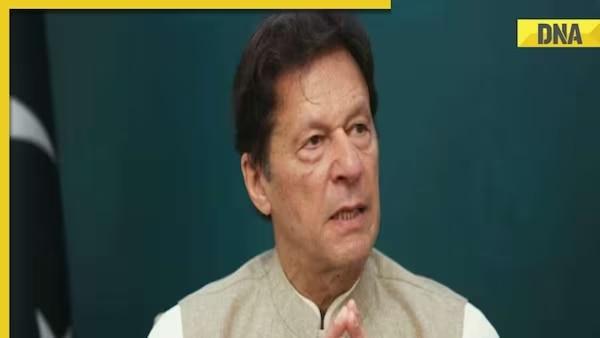
The Pakistan government announced its intention to ban Pakistan Tehreek-e-Insaf (PTI), the political party led by jailed former Prime Minister Imran Khan, due to its alleged involvement in anti-state activities. This revelation was made by Information Minister Attaullah Tarar on Monday. The decision, he noted, is backed by clear evidence implicating the PTI in actions detrimental to the state, according to a report by The News International.
The 71-year-old Imran Khan finds himself currently incarcerated in Adiala Jail, located in Rawalpindi, as he faces numerous legal cases. The government’s move to ban his party is seen as a significant development in the tumultuous political landscape of Pakistan. The timing of the announcement is particularly noteworthy, coming shortly after a series of judicial decisions that seemed to offer some relief to both Khan and his party.
Just recently, the Supreme Court had provided favorable rulings in the reserved seats case linked to the PTI. Additionally, Khan had seen some legal ease in an ongoing case related to an alleged illegal marriage. Despite these judicial reprieves, the federal government’s decision indicates a heightened effort to target the opposition, particularly focusing on the activities and conduct of the PTI.
Information Minister Tarar emphasized the gravity of the situation, pointing to what he described as “clear evidence” against the party. “There are definitive proofs that the Pakistan Tehreek-e-Insaf has engaged in activities that are considered anti-state,” Tarar affirmed. He further explained that the government has thoroughly assessed the evidence and has thus resolved to take stringent actions, which include initiating official proceedings to formally ban the PTI.
Observers of Pakistan’s political dynamics may note that this development isn’t occurring in isolation. It follows a period of intense political strife and legal battles involving Khan and his party. Imran Khan, who served as Pakistan’s Prime Minister from 2018 until his removal through a no-confidence motion in April 2022, has been a central figure in the country’s recent political discourse.
. His tenure and subsequent political activities have been marked by significant controversy and widespread popular support as well as opposition.
The allegations of anti-state activities come amidst a context where political parties in Pakistan have often been accused of crossing red lines in their criticism and actions. The specifics of the allegations against PTI, as intimated by the government, are yet to be fully disclosed to the public. However, such a measure indicates the serious nature with which the current administration views these alleged activities.
Critics of the government might argue that this ban could be perceived as part of a broader strategy to stifle dissent and weaken political competition. Given the turbulent political environment, the move to ban a major political party like the PTI will undoubtedly stir significant debate and possibly even unrest among its supporters.
On the other hand, proponents of the decision might assert that it reflects a necessary step to maintain national integrity and security. If the allegations against the PTI hold substance, the government could argue its actions as being justified in the interest of preserving the state.
As for Imran Khan himself, his journey from a celebrated cricketer to Prime Minister, and now a jailed political figure facing the possible ban of his party, illustrates the volatile nature of Pakistani politics. His leadership of the PTI has been transformative in some respects but also contentious, often drawing fierce reactions from both supporters and detractors.
With the government moving ahead with its plans to initiate formal proceedings, the coming days are likely to see significant legal and political maneuvers from both sides. The unfolding events will be closely watched not just by the Pakistani people but by international observers interested in the region’s stability and democratic processes.
Whether this ban will be implemented with immediate effect or face challenges in the courts or from within the political sphere remains to be seen. What is clear, however, is that Pakistan’s political landscape is set to undergo a critical phase, with the implications of this decision reverberating through its democratic and societal structures.










